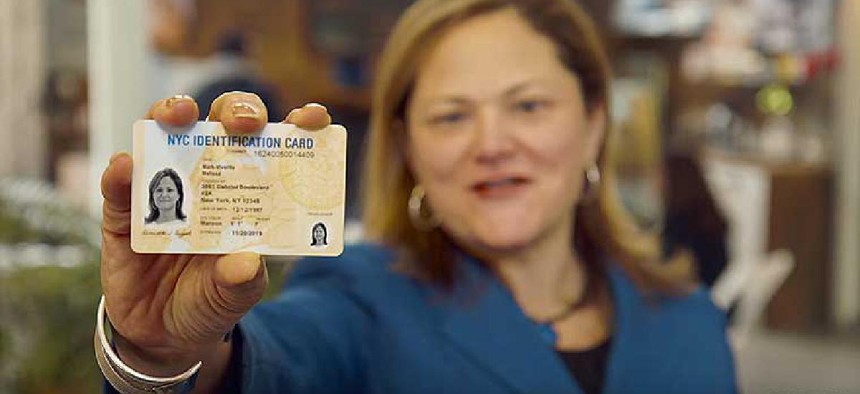NYC seeks smart chip for ID card program

To enhance the utility and security of a citywide identification card, New York City officials are considering creating a smart chip-enabled ID on par with the credit card industry.
In 2015, New York City Mayor Bill de Blasio launched the IDNYC municipal identification program. The IDNYC card can be used by all New York City residents regardless of immigration status as a proof of identity, an ID for benefits applications and opening bank accounts, and a membership and discount card for services throughout the city.
Now, IDNYC is looking to upgrade the existing card with an embedded smart chip that will allow for electronic payments and enable another authentication factor. The EMV chip will support integration with other government programs such as NYC’s Metropolitan Transportation Authority’s planned contactless fare payment system and the city public health care system’s medical records database.
The smart chip-enabled card also will allow for payments to private vendors throughout the city, using both contactless and traditional card-reader systems.
All interested EMV providers should be able to meet regulatory and compliance requirements to operate payment-processing services in New York. The city also expects providers to have an existing customer base with EMV chip-based prepaid cards and the customer service resources -- including online portals, smartphone apps and call-in assistance -- to support that customer base.
Cardholders, meanwhile, will need an existing bank account or credit card to link to their IDNYC account.
Improvements to ID cards have been a source of interest for state agencies as well. The Maryland Department of Transportation completed a pilot of smartphone-based digital driver’s licenses in October 2017. Iowa's Department of Transportation has tested mobile driver license software to replace a physical license card.
Interested vendors are asked to respond to NYC’s request for expressions of interest by June 29. Up to five finalists will asked to respond to additional questions, and the final selection is expected by December 2018.
Read the full solicitation here.
Editor's note: This articile was changed July 5 to correct a reference to EMV.





